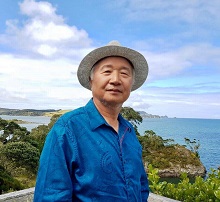A Quote by Octavio Paz
Eroticism is first and foremost a thirst for otherness. And the supernatural is the supreme otherness. This is perhaps the most noble aim of poetry, to attach ourselves to the world around us, to turn desire into love, to embrace, finally what always evades us, what is beyond, but what is always there – the unspoken, the spirit, the soul.
Related Quotes
Perhaps because the origins of a certain kind of love lie in an impulse to escape ourselves and out weaknesses by an alliance with the beautiful and noble. But if the loved ones love us back, we are forced to return to ourselves, and are hence reminded of the things that had driven us into love in the first place. Perhaps it was not love we wanted after all, perhaps it was simply someone in whom to believe, but how can we continue to believe the the beloved now that they believe in us?
The beloved is already in our being, as thirst and "otherness." Being is eroticism. Inspiration is that strange
voice that takes man out of himself to be every thing that he is, everything that he desires; another body,
another being. Beyond, outside of me, in the green and gold thicket, among the tremulous branches,
sings the unknown. It calls to me.
We have the Noble Desire to help others and benefit the world, without expecting any return or recognition. What makes us great is not our knowledge, skill, money, or power. What makes us great is not our knowledge, skill, money, or power. What makes us truly great is this noble desire, this passion that transcends all separation, goes beyond one's limitations, and wants to hug others and embrace the whole world. This is not something that we need to learn, because we already have it. It just needs to be acknowledged and awakened.
I stood willingly and gladly in the characters of everything - other people, trees, clouds. And this is what I learned, that the world's otherness is antidote to confusion - that standing within this otherness - the beauty and the mystery of the world, out in the fields or deep inside books - can re-dignify the worst-stung heart.
It is not merely our own desire but the desire of Christ in His Spirit that drives us to grow in love. Those who seldom or never feel in their hearts the desire for the love of God and other men, and who do not thirst for the pure waters of desire which are poured out in us by the strong, living God, are usually those who have drunk from other rivers or have dug for themselves broken cisterns.
It is the Paraclete Spirit, the "Comforter", who grants us the courage to take to the streets of the world, bringing the Gospel! The Holy Spirit makes us look to the horizon and drive us to the very outskirts of existence in order to proclaim life in Jesus Christ. Let us ask ourselves: do we tend to stay closed in on ourselves, on our group, or do we let the Holy Spirit open us to mission?
In Grade 2, when we had to do a presentation in front of the class, I'd always do things about Ireland or Italy. I could draw maps; I could name all the capitals: I was completely drawn to other lands. I discovered with time that it's a thirst for other people, for otherness, for something fascinating and mysterious.






































